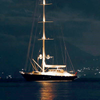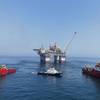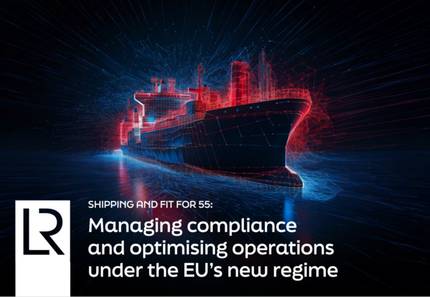'Safe Haven' Debate Could Have Resounding Effects
Greek operator Athenian Sea Carriers said that the Moroccan Coast Guard instructed the vessel to move 40 miles offshore, while a decision was made on the final destination for the carrier, which was damaged during heavy weather between December 26 and December 31 on a voyage from Constanza in Romania to Lagos. A surveyor reported that the crack occurred along a transverse butt-weld next to number four hold, with some reports saying that crack was 20 m long. Apparently the tanker was not yet leaking any cargo.
The main concern, beyond any potential environmental disaster in the case of the ship breaking up, was that the deck plates would rub, spark, and ignite the cargo. As the saga continued, tensions obviously grew increasingly high, with the captain and crew at one point threatening to abandon the ship in the event of continued indecision.
The Castor saga succinctly illustrates gaps in protocol in the handling of damaged, but seaworthy, ships. All of Europe - much as the U.S. is - is particularly sensitive to potential ship sinking and ensuing environmental disaster, in the wake of the break up of the Erika off the coast of France just one year before.
As a resolution to the Castor situation dragged on, the International Maritime Organization (IMO) called for measures to ensure refuge for troubled ships like the Greek tanker Castor. "The time has come for the organization ... to adopt any measures required to ensure that... coastal states review their contingency arrangements so that disabled ships are provided with assistance," Secretary General Bill O'Neil told an IMO committee meeting in London. "That incident brought to light once again the question of ports of refuge," said O'Neil.
Chief Executive Officer of Athenian Sea Carriers, Nicolas Hondos said during the ordeal: "The Castor has now been seeking a Port of Refuge for more than one week. Every day that passes, increases the risk of further deterioration in the weather and risk to lives and of pollution." Hondos said there was a large team of experts on the scene, fully supported by tugs and equipment. The ship is in the tow of the world's most powerful salvage tugboat, Nikolay Chiker, with all crew off the ship.
There are currently no legal obligations on coastal states to provide "ports of refuge" nor is there a definition of what constitutes a "ship in distress," an IMO spokesman said.
On December 8, the damaged VLCC Eastern Power, carrying 250,000 tons of Iraqi crude, was refused entry to Canadian waters after it reported a minor leak during heavy storms. It eventually continued through heavy seas to St. Eustatius in the Caribbean for the cargo to be offloaded. The tanker Erika was also refused refuge in December 1999 before it broke apart in a storm, leading to a major spill of fuel oil across the coastline of Brittany.
At press time, salvage workers and shipping experts were studying a possible mid-sea transfer of nearly 30,000 tons of gasoline from a damaged tanker at risk of exploding. Spanish authorities insisted the tanker would not be allowed back into the country's waters to carry out the potentially risky operation. A tugboat carrying equipment and specialists for the operation had joined the Greek-owned tanker Castor, around 56 km (35 miles) off the Spanish port of Cartagena in the Mediterranean Sea, the ship's operator Athenian Sea Carriers said in a statement.
Spain's Merchant Navy Directorate issued its own statement saying authorities would not allow the boat back into the country's waters and any transfer would have to take place on the high sea. "Spain's maritime authorities will ensure that the boat remains in international waters, far away from the Spanish coast," the Spanish statement said. A spokesman for Athenian Sea Carriers said that could add to the risks of the operation. "It would be much safer to do it closer to the coast, in sheltered waters," he said. - (staff and wire reports)











